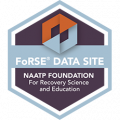Drug Detox Symptoms: Detox Fever and Chills
Drug detoxification is a critical step in the recovery process for individuals struggling with substance use disorders. During detox, the body works to eliminate drugs, and this process often triggers a variety of symptoms, including body aches, fever, and chills. Among these, detox fever and chills are particularly common and can be quite uncomfortable. This blog post will explore the symptoms of drug detox, focusing specifically on fever and chills, their causes, and how to manage them effectively.
Table of Contents
ToggleWhat Are Drug Detox Symptoms?
Drug detox symptoms can vary significantly based on several factors, including the type of substance abused, the duration and intensity of use, and the individual’s overall health. Common symptoms of drug detox include:
- Physical Symptoms: Nausea, vomiting, diarrhea, muscle aches, fatigue, sweating, fever, chills, and general physical discomfort.
- Psychological Symptoms: Anxiety, depression, irritability, insomnia, and cravings for the substance.
- Cognitive Symptoms: Confusion, difficulty concentrating, and memory problems.
While some individuals may experience mild discomfort, others may face severe withdrawal symptoms that require medical intervention. Understanding the various detox symptoms, particularly fever and chills, can help individuals and their loved ones prepare for and manage this challenging phase of recovery.
Withdrawal Symptom Variability
Withdrawal symptoms can vary significantly from person to person, influenced by factors such as the duration of addiction, the specific substance involved, the amount consumed, and an individual’s overall physical and mental health. Common withdrawal symptoms include shaking, sweating, agitation, nausea, vomiting, anxiety, rapid heart rate, tremors, disorientation, insomnia, seizures, increased anxiety, muscle tension, sleep disturbances, panic attacks, heart palpitations, profuse sweating, headaches, cravings, and hand tremors.
The type and severity of symptoms can also depend on the individual’s medical history, including any pre-existing conditions or previous experiences with withdrawal. This variability underscores the importance of understanding that each person’s detox experience is unique. Recognizing the wide range of potential withdrawal symptoms can help individuals and their loved ones better prepare for the detox process and seek appropriate medical supervision when necessary.
Understanding Detox Fever and Chills

Detox fever and chills are symptoms that can occur during the withdrawal phase of drug detox. Fever from detoxing is a common symptom that can arise during the withdrawal phase. Fever refers to an elevated body temperature, while chills are feelings of coldness accompanied by shivering, even when the body is warm. These symptoms are part of the body’s response to the absence of a substance it has become dependent on.
During detox, the brain and body undergo significant changes as they attempt to regain balance after prolonged substance use. This process can trigger a range of physiological responses, including changes in body temperature regulation, leading to the development of fever and chills.
Definition of Fever
Fever is generally defined as an elevation in body temperature above the normal range, which is typically around 98.6°F (37°C). During the detoxification process, fever can be a common symptom as the body adjusts to the absence of substances. This increase in body temperature is part of the body’s response to the stress of withdrawal and the effort to restore balance.
In the context of alcohol withdrawal, fever can be a sign of a potentially severe condition known as delirium tremens (DTs). DTs is a severe form of alcohol withdrawal that requires immediate medical treatment due to its life-threatening nature. Understanding the definition and implications of fever during detox can help individuals recognize when to seek medical attention and ensure their safety throughout the detox process.
Why Does Fever Occur During Drug Detox?
Fever during drug detox can occur for several reasons: Individuals can get a fever from detoxing due to various physiological responses.
- Immune System Response: The body may react to the withdrawal of drugs as a stressor, triggering an immune response. This response can lead to inflammation and fever as the body attempts to heal itself.
- Thermoregulation Changes: Prolonged drug use can disrupt the body’s natural thermoregulation processes. When substances are withdrawn, the body may struggle to maintain a stable temperature, resulting in fever.
- Withdrawal Symptoms: Fever can be a direct withdrawal symptom of certain drugs, particularly opioids and alcohol. As the body adjusts to the absence of these substances, it may react by raising its temperature.
- Dehydration: Drug detox can lead to dehydration due to vomiting, diarrhea, or excessive sweating. Dehydration can contribute to fever as the body’s thermoregulatory mechanisms become impaired.
Understanding these mechanisms can help individuals and their loved ones recognize that fever is a common symptom during detox, not necessarily an indication of a severe underlying issue.
The Connection Between Chills and Withdrawal Symptoms
Chills often accompany detox fever and are typically experienced when the body tries to regulate its temperature. Chills can occur for several reasons during drug detox:
- Withdrawal Symptoms: Similar to fever, chills are often part of the withdrawal syndrome. The body reacts to the absence of the drug, leading to sensations of coldness even in warm environments.
- Fluctuating Body Temperature: As the body attempts to adjust to the absence of the drug, temperature regulation can fluctuate, causing sensations of heat followed by chills.
- Emotional Distress: Psychological symptoms such as anxiety and depression, common during detox, can also contribute to physical sensations like chills.
Understanding the connection between chills and withdrawal can help individuals recognize that these symptoms are part of the detox process and may improve with time and appropriate care.
Common Drugs That Cause Detox Fever and Chills
Several substances are known to cause detox fever and chills during withdrawal. Some of the most common include:
- Opioids: Withdrawal from opioids such as heroin, morphine, or prescription painkillers can lead to flu-like symptoms, including fever and chills.
- Alcohol: Alcohol withdrawal can result in severe symptoms, including fever, chills, and more serious complications like delirium tremens (DTs).
- Benzodiazepines: Withdrawal from benzodiazepines like Xanax or Valium can also cause significant discomfort, including fever and chills.
- Stimulants: Stimulants like cocaine or methamphetamine can lead to various withdrawal symptoms, including body temperature fluctuations.
- Cannabis: Although generally milder, cannabis withdrawal can still cause discomfort, including chills and slight fever in some users.
Recognizing the specific substances involved can help in understanding the potential withdrawal symptoms and their severity.
How Long Do Fever and Chills Last During Detox?
The duration of fever and chills during detox can vary widely among individuals and depends on several factors, including the type of substance, the length of use, and overall health. Generally, the following timelines are observed:
- Opioid Detox: Fever and chills may last for several days, peaking around the second to the fourth day of withdrawal and gradually subsiding thereafter.
- Alcohol Detox: Symptoms may be more severe and can last for a week or longer, particularly in individuals at risk for DTs.
- Benzodiazepine Detox: Symptoms can last from several days to weeks, with some individuals experiencing protracted withdrawal symptoms.
- Stimulant Detox: Fever and chills may last for a few days, with most symptoms subsiding within a week.
Overall, while detox symptoms like fever and chills can be distressing, they are typically temporary and should resolve as the body adjusts to the absence of the drug.
Managing Detox Fever and Chills: Tips for Comfort
Managing detox fever and chills can be challenging, but several strategies can help ease discomfort:
- Stay Hydrated: Drink plenty of fluids to stay hydrated and help your body regulate temperature.
- Rest: Allow your body to rest and recover. Sleep can help improve overall well-being during detox.
- Use a Cool Compress: Applying a cool cloth or compress to your forehead can help reduce fever and provide comfort.
- Dress Comfortably: Wear light clothing and use lightweight blankets to avoid overheating while still being comfortable.
- Monitor Temperature: Keep track of your temperature and overall symptoms to identify any significant changes.
- Consider Over-the-Counter Medications: Acetaminophen or ibuprofen can help manage fever and discomfort. Always consult a healthcare professional before taking any medication.
- Seek Support: Lean on friends, family, or support groups for emotional and practical assistance during detox.
Implementing these strategies can help individuals find comfort and improve their overall experience during the detox process.
When to Seek Immediate Medical Attention for Detox Symptoms
While some discomfort is expected during drug detox, certain symptoms may require immediate medical attention. It is crucial to seek medical supervision during detox to ensure safety and address any severe symptoms. Individuals should seek help if they experience:
- High Fever: A fever above 101°F (38.3°C) that persists or rises rapidly.
- Severe Chills: Intense chills accompanied by confusion or disorientation.
- Severe Pain: Uncontrollable pain or discomfort that cannot be managed with over-the-counter medications.
- Breathing Difficulties: Shortness of breath or chest pain.
- Severe Psychological Symptoms: Suicidal thoughts, severe anxiety, or hallucinations.
Seeking medical help can ensure safety and provide necessary interventions for severe symptoms during detox.
Medications and Therapies for Detox Fever Relief
Several medications and therapies can help alleviate detox fever and associated symptoms:
- Antipyretics: Medications like acetaminophen or ibuprofen can help reduce fever and provide comfort.
- Hydration Therapy: Intravenous (IV) fluids may be administered in a medical setting to address dehydration and help manage fever.
- Supportive Care: Therapeutic approaches, including counseling and group therapy, can address psychological symptoms during detox.
- Medications for Withdrawal Symptoms: For certain substances, medications like buprenorphine or methadone may be prescribed to ease withdrawal symptoms and reduce fever and chills.
- Monitoring and Supervision: Regular monitoring by healthcare professionals can help ensure safety and provide necessary interventions for severe symptoms.
Accessing these medications and therapies can significantly improve comfort and support recovery during detox.
The Detoxification Process
Drug detox is a crucial step in overcoming substance abuse addiction involving the removal of harmful substances from the body. The detoxification process can vary depending on the substance involved, the individual’s health status, and other factors. Medical supervision is essential during detoxification to ensure the individual’s safety and well-being.
The detox process aims to manage withdrawal symptoms and support the body as it eliminates the substance. This process can be challenging and uncomfortable, but it is a necessary step towards recovery. With the guidance of healthcare professionals, individuals can navigate the detoxification process more safely and effectively, reducing the risk of severe symptoms and complications.
Steps of Detox
The detoxification process typically involves three essential components: evaluation, stabilization, and fostering entry into treatment.
- Evaluation: This initial step involves a comprehensive assessment of the individual’s addiction history, physical health, and mental well-being. Healthcare professionals gather information to create a tailored detox plan that addresses the specific needs of the individual.
- Stabilization: During this phase, the focus is on managing withdrawal symptoms and providing medical support to ensure the individual’s safety and comfort. This may involve the use of medications to alleviate symptoms and prevent complications.
- Fostering Entry into Treatment: The final step involves preparing the individual for further treatment and recovery. This includes providing information about ongoing treatment options, support groups, and resources to help maintain sobriety and prevent relapse.
By following these steps, the detoxification process can be more structured and supportive, helping individuals transition smoothly into long-term recovery.
Psychological Effects of Detox
Detoxification can have significant psychological effects, including cravings and emotional instability. Cravings can be intense and overwhelming, leading to a strong desire to return to substance use. Emotional instability can manifest as mood swings, irritability, anxiety, and depression.
These psychological symptoms can be challenging to manage, but addressing them is essential to support individuals going through the detox process. With appropriate support, including medical supervision and emotional counseling, individuals can better cope with the psychological effects of detox and work towards a successful recovery.
Cravings and Emotional Instability
Cravings are a common psychological symptom experienced during detoxification, particularly when the body is accustomed to regular intake of a specific substance. These cravings can be powerful and persistent, making it difficult for individuals to resist the urge to use the substance again.
Emotional instability during detox can also be challenging, with individuals experiencing mood swings, irritability, anxiety, and depression. Cognitive effects, such as slower motor reflexes, and severe signs like seizures, delirium, and hallucinations can also occur. Managing these symptoms requires a comprehensive approach that includes medical supervision and emotional counseling.

By addressing cravings and emotional instability with appropriate support, individuals can navigate the detox process more effectively and build a strong foundation for long-term recovery.
The Importance of Professional Supervision During Drug Detox
Detoxing from drugs can be a challenging process, and professional supervision is crucial for several reasons:
- Safety: Medical professionals can monitor vital signs and symptoms, ensuring safety throughout the detox process.
- Addressing Complications: Supervision allows for immediate intervention in case of severe withdrawal symptoms or complications.
- Emotional Support: Trained professionals can provide emotional support and coping strategies to help individuals navigate the detox process.
- Access to Resources: Professional detox facilities often offer a range of therapies and addiction resources to support recovery.
- Tailored Treatment: Healthcare providers can tailor detox plans to meet individual needs, optimizing the recovery process.
Choosing to undergo detox under professional supervision can lead to a safer and more effective recovery journey.
Seeking Treatment at First City Recovery Center in Kokomo, Indiana
First City Recovery Center offers a supportive environment for individuals seeking treatment for substance use disorders. Their professional team provides comprehensive detox services, including:
- Medical Supervision: 24/7 monitoring and support from experienced healthcare professionals.
- Personalized Treatment Plans: Tailored detox plans to address individual needs and circumstances.
- Therapeutic Support: Access to counseling and support groups to help individuals cope with withdrawal symptoms.
- Aftercare Services: Resources and support to help individuals transition to ongoing recovery.
Choosing First City Recovery Center for detox can provide individuals with the safety, support, and resources needed for a successful recovery journey. Contact First City Recovery Center to begin your journey to lifelong sobriety today.

MD, Psychiatrist
Dr. Vahid Osman, MD is a psychiatry specialist in Indianapolis, IN.
Dr. Osman completed a residency at Austin State Hospital. He has over 32 years of experience in Psychiatry & Behavioral Health. He is board certified by the American Board of Psychiatry and Neurology.





